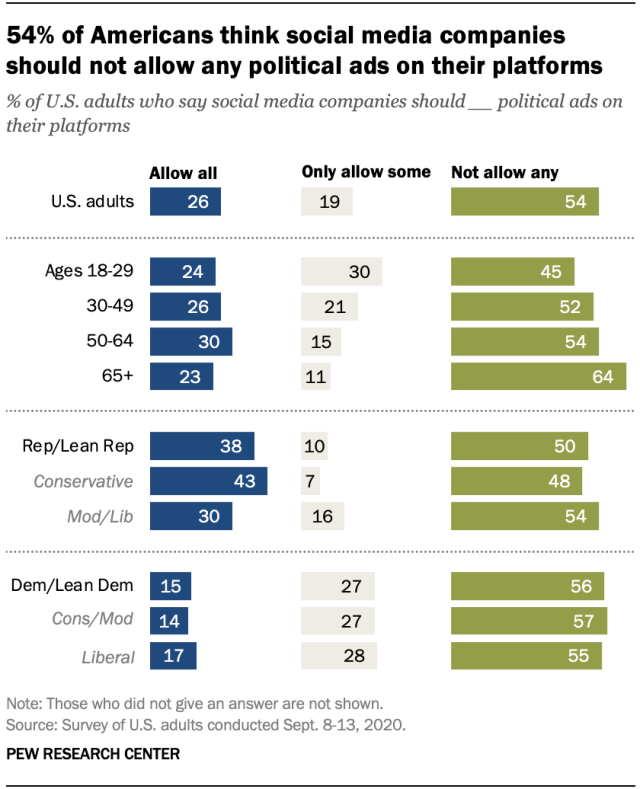☀️ Happy Thursday! The Briefing updates you on what’s happened and what’s coming in the news and information world – and what our data tells us about it. Not a subscriber yet? Sign up here!
In today’s email:
- Top story: News organizations block ChatGPT from accessing their content
- Under the radar: Atlanta magazine struggles with editorial independence from its publisher
- Looking ahead: Five late-night TV hosts are collaborating on a podcast about the ongoing entertainment industry strikes
- Chart of the week: Americans’ opinions about political ads on social media
🔥 Top story
Several news organizations have recently taken steps to block ChatGPT, the artificial intelligence-powered chatbot created by OpenAI, from accessing their content. These outlets, including CNN, The New York Times, Reuters and The Washington Post, added code to their websites that blocks OpenAI’s web crawler from scanning the sites’ news content to train its AI models.
The share of U.S. adults who are concerned about the increased use of artificial intelligence is growing, according to a new Pew Research Center survey. Overall, 52% of Americans say they feel more concerned than excited about the increased use of artificial intelligence, up from the 38% who expressed this view in December 2022.
🕵️ Under the radar
- Atlanta magazine struggles with editorial independence from its publisher
- A WhatsApp-exclusive newsletter provides cultural news in Pamplona, Spain
- A look at the restrictions journalists face at Guantanamo Bay
- Futuro Media, a nonprofit focused on Latino news, announces layoffs
- Chicago TV news crew robbed at gunpoint while reporting on robberies
- How a 9/11 narrative helped reporters from The Dallas Morning News cover a mass shooting
📅 Looking ahead
Five late-night TV hosts – Stephen Colbert, Jimmy Fallon, Jimmy Kimmel, Seth Meyers and John Oliver – are collaborating on a limited-series podcast about the ongoing entertainment industry strikes. All of its proceeds will go to the out-of-work staffers from their late-night shows.
The series is distributed by Spotify’s Megaphone and is available on multiple podcast platforms. In a 2022 audit of podcasts, the Center found nearly all top podcasts (99%) are available on Spotify, and 81% are available on at least four major platforms.
📊 Chart of the week
X, formerly known as Twitter, announced that the social media platform will allow political ads leading up to the 2024 presidential election. In a 2020 Center survey, roughly half of U.S. adults (54%) said social media companies should not allow any political ads on their platforms, while 26% said they should allow all political ads and 19% said they should only allow some.

👋 That’s all for this week.
The Briefing is compiled by Pew Research Center staff, including Naomi Forman-Katz, Jacob Liedke, Sarah Naseer, Christopher St. Aubin and Emily Tomasik. It is edited by Katerina Eva Matsa, Michael Lipka and Mark Jurkowitz, and copy edited by Anna Jackson.
Do you like this newsletter? Email us at journalism@pewresearch.org or fill out this two-question survey to tell us what you think.